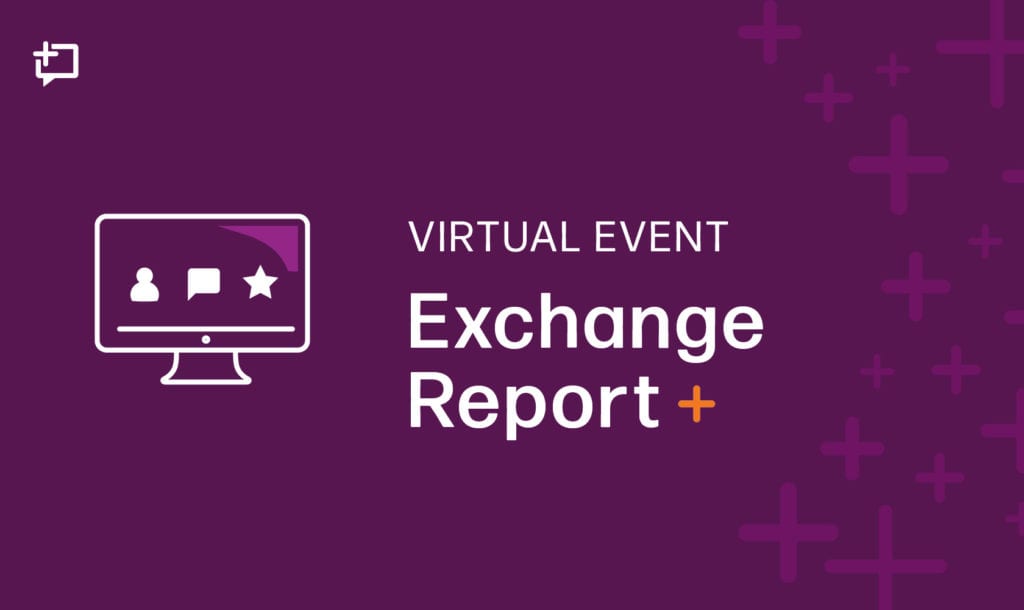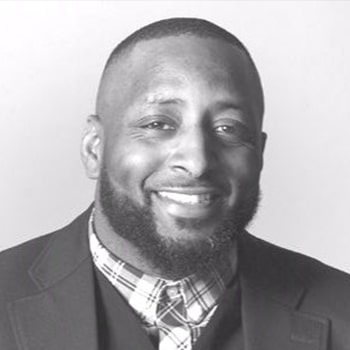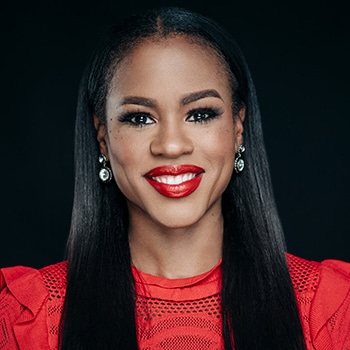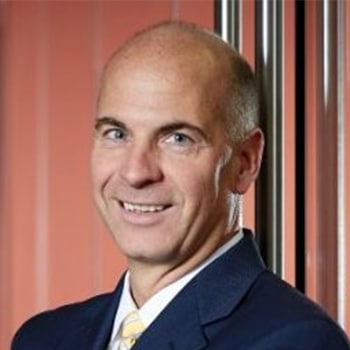Little Things Matter

Mike Marusic - Little Things Matter
Featured Speaker, March 25th, 2021
Well first off, I'm going to hire you as my personal intro person. That was awesome. You know, I think – I think we're touching on a lot of key things and this next group that we're with I have a lot of – I can commiserate, you know, we are in some spaces that were really impacted by COVID in the last year. And you know, so my business is office technology and you know, we knew that we would be transforming from a paper world to a digital world and there was going to be a path to that.
And then last March happened and the path went from three to five years to three weeks. And we had to change everything. And you know, we – I remember sitting down at the beginning of April thinking, I'm in charge of a category that focusses on people in the office, or digital signage for people in restaurants. Not a great place to be right now.
And there is that moment where you sit there and go this is not going to be fun. And then you think about all the other people in your organization. You think about the people who sell your products. They're feeling the same things, right? And you begin to realize the challenge that you have.
And so for us I felt that the real change in how we approached the business really was adapting a different style of what we always had done. And I always take credit for it as a joke. Senior vice president of sales came up with a concept a few years earlier about little things matter. And you know, he said, let's just focus on the little things our customer need, our clients need and the big things will take care of themselves.
And so we took a step back and we looked at what are people feeling right now? And I think it was mentioned earlier you had to go from that driving – and I would never have been considered the cuddly leader, but you had to go from that driving personality to that thing like, wait a second. People are concerned about their income. They're concerned about their health. Business owners are concerned about their business. So what can we do to support them in what they need right now? Because you know – and it is a little bit greedy. You look at it and say if they're not here in six months what I need doesn't matter.
And so we really did focus on our customers. We put together programs that made sure sales people who sold our products could get paid while not selling our product. So we came up with other ideas of training and other support ideas.
We are a service-intensive industry. We go into your offices and we maintain your copy machine, we make sure your networks are up, things like that. Well our clients, our customers had to do that. We were able to procure 200,000 surgical masks for our customers in early April, and we just sent it to them. We just said, you need this right now. There's no ask. Just you need these right now to do your job.
You know, so those little things built upon a level of trust. And I think the – you know, the B2B space was mentioned a number of times already. Having trust with your customers and being there when you don't ask for something is what really matters.
And as things started picking up we began to see the value of that. We began to see our business pick up. We began to see people willing to talk to us about things. And I think it was mentioned earlier, challenging the assumptions right? Don't go in to be a sales person saying, here's what you always did, let's just do more of that. And we went in and said, hey, our world just changed. I don't sell all the products that you're going to need in the future, but you need to start looking at these things. You need to start looking at things Sharp doesn't provide in order to sustain your business and sustain your operation.
And I think – you know, people appreciated the fact that we hooked them up with others – not necessarily competitors, I'm not crazy, but you know, people who could help them. And I think that went a long way to sustain their business and build that trust with our company.
And then you know, as we go forward now, you look at everything I just talked about, we were a relationship sales business, we were in front of a customer, so a lot of comments about building a pipeline and getting meetings and things like that. That's all changed.
And I remember just before we joined I was talking to Kelvin about the story, early summer last year, I had started a young person's group, I guess you could call it Gen Y group in our organization, how do we develop our next level of talent? And then COVID hit and we had to pause everything.
So I called up the two young women who put it together and I said, hey, I just want to let you know we're still going to do this, but tell me, how are you doing? How's it working at home? And they laughed at me. And they said, this is our world. We get this. You know, we talk to our friends digitally. We text, we video chat, this is how we operate.
And it instantly struck me that we really need to pivot how we market to our customers, how we support people, because the old way of doing things radically changed and you know, I don't want to call myself a dinosaur yet, but the way I grew up and learned my skillsets are not necessarily applicable right now.
And so you had to bring different people into the conversation. And I think going forward a company like ourselves and many – you know, trying to get into B2B, trying to sell products, trying to drive revenue, the ability to get into a customer has forever changed. You have to kind of presell them before ever meeting them. You have to get more digital. You have to be more flexible.
And these are all things that are not what I would say traditional for our business. Not traditional for our industry. And how do you teach people to change that methodology? Very hard. We're trying to do it remotely again. Right? So you're trying to learn how to operate remotely while teaching people how to operate remotely. Not an easy task.
And so I think that's really going to be the biggest challenge going forward. And so we try to do a lot of town hall meetings. We try to do a lot of discussions with our people, explaining where the company is, explaining what we're trying to accomplish, and hopefully that translates into their knowledge so that they can give us fishing.
And we do these town halls, we do 20 minutes of, you know, leadership speaking and 40 minutes of feedback. And they tell us, you get a lot of great ideas of you know, you're asking for this, but did you realize some of your other initiatives are not necessarily in line with that or are blocking our success in that?
And so I think getting feedback across all parts of the organization are going to change. And so the last part I like to think about is, I think hierarchy has forever changed. I think hierarchy in companies, the need to be fluid right now, has changed that forever. And my style before we started the pandemic, we had a little joke here, I used to get pretzels, there's little pretzel rods, I'm addicted to them, but we kept them on the other end of the building, and I would walk down to get pretzel rods twice a day. And it was a symbol, if I'm holding a pretzel rod, clearly I'm not busy right now. But it opened the door for somebody to talk to me.
And so I used that as a tool. I could have put the pretzels right here but I used it as a tool just to walk around. And that was my way of finding out what all levels of the organization were thinking, talking about, what was on their mind.
I lost my pretzel walk during this period. And so you need – you know, you need to find new ways to get those barriers removed and start allowing other people to come up with ideas because a lot of the people in leadership roles, myself included, got there in an old business model. And so you need to open up the door to get new ideas and new ways of doing things, and it's not so easy when you're remote.
So I think that's the biggest challenge. If I look at what all leaders should be doing right now, it's trying to get better feedback from their existing people of what is it that we could be doing differently? What are people who don't normally have a voice in how we do things, what do they think we should be doing because so much has changed recently.
So that – hopefully I kept it under five minutes, but I think those are really, for me, that's really what's changed about business and driving revenues. So.
Thank you.





